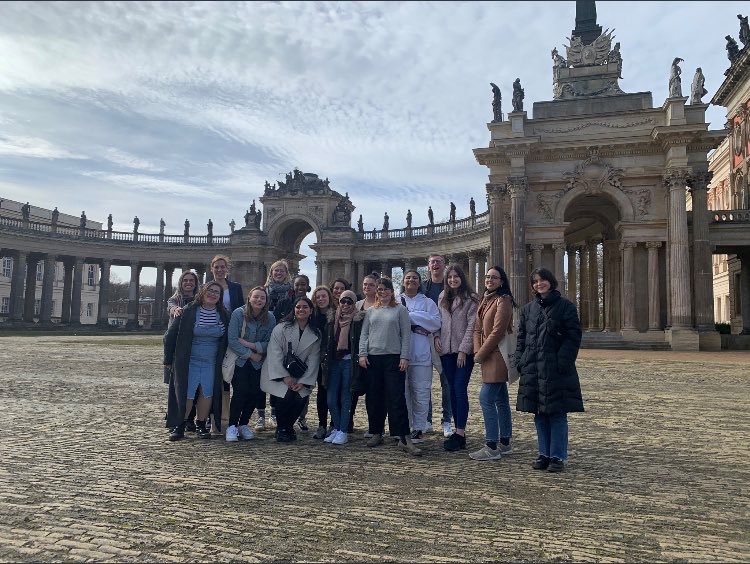Blog: Should ‘EU’ still listen?
Date 9.04.2019
9.04.2019
Recently, Sociology students from the University of Northampton spent two weeks touring five European countries for an international ‘Brexit field trip’.
Here, student Eleanor Smith talks about what she expected and her view on Brexit being a ‘Farewell to Europe’.
The play on words in the title is the basis for this blog, dedicated to the recent Sociology International Field Trip Module in which meant, as Second Year Sociology students, we got to explore the feelings and attitudes of Europe, very relevant considering the deteriorating relationship we have with the EU.
It was this that triggered a catchphrase about the experience which was a ‘Farewell to Europe’ as well as some questions:
- Would this trip really signal farewell after such a long turbulent relationship between the UK and the EU?
- Are they as sick of it as we are?
- Are they just as confused?
- Or did they see the collapse of the EU?
As we embarked on the Eurostar and began our trip towards Europe, joining the bustle of commuters, I thought how would something as everyday as this continue, considering how Brexit is being conducted? Would people still want to travel and be happy to go Europe? Or will the pictures painted by our government taint our idea of Europe and confine us to a solitary, anglicised lifestyle?
I remember feeling small within the history and the business of the European Parliament and thinking that this is the side everyday people do not know. All we know of it are the tirades of Nigel Farage defending the notion of a “British identity”.
At the European Parliament, we met MEP Jonathan Bullock who mentioned that we are always going to have a connection to it (the EU) whether we are in or out and it was this sentiment that resonated most with me.
This idea of connection to Europe reminds me more of the advantages of globalisation. Globalisation is one of the hottest topics within sociology and this field trip was essentially a mini ‘globalisation in action’ journey. We were taking our academic practices and spreading information to either an audience similar to us or to the everyday person. Both academics and locals all had some opinion about Brexit which was usually accompanied with sighs and looks of confusion – something shared by the general public in Britain!
It was also fascinating seeing the ‘collapse’ of Brexit communication whilst away, noticing that in the majority of the countries we visited, it had little profile compared to the blanket coverage across British media. This made the matter of Brexit seem so small in the large scale of things, just as small as I had felt in the European Parliament.
This made me question what role we all play in the ‘Brexit game’, from the academic to the shop owner and to the man, woman or whomever on the street. I read in an article that the history of one’s own country predicts the role it takes politically. This made me think that all the countries we visited had its own complicated history that could have predicted its political movements, for example Germany moving away from fascism to a new democracy and even our own country having a constant battle between left and right politics, struggling to find middle ground to please everyone.
That made me realise that whatever the outcome of Brexit, nobody will be pleased because we are globalised and because of that we are disenfranchised from the ‘local’ community – something we could learn from Europe is how to connect to the local. Despite being made up of 28 nations, the EU still emits that feeling of community, something I feel we have lost in the UK and hence the issues we see with Brexit.
The EU is a community that continues to grow whilst we, as the title of our field trip describes, say farewell.
For more, read Associate Lecturer Maria Monaghan’s blog.
Find out more about the Sociology (Ba Hons) course at the University of Northampton.